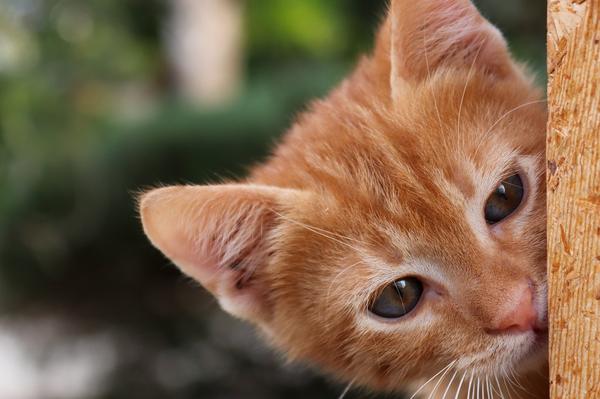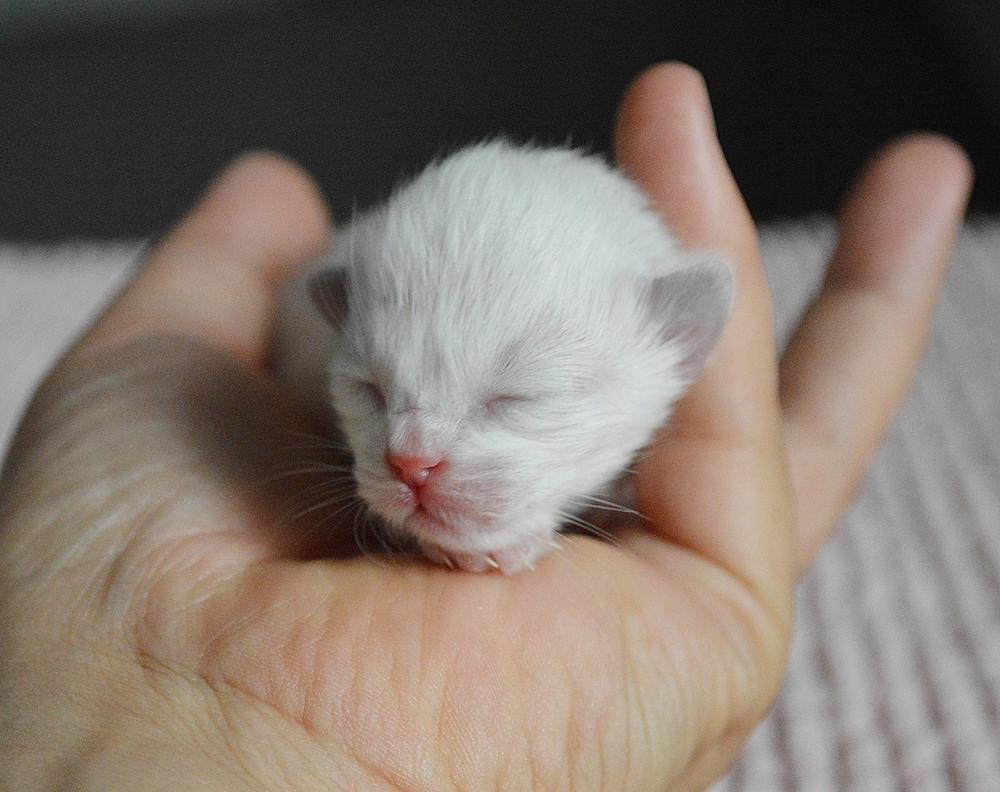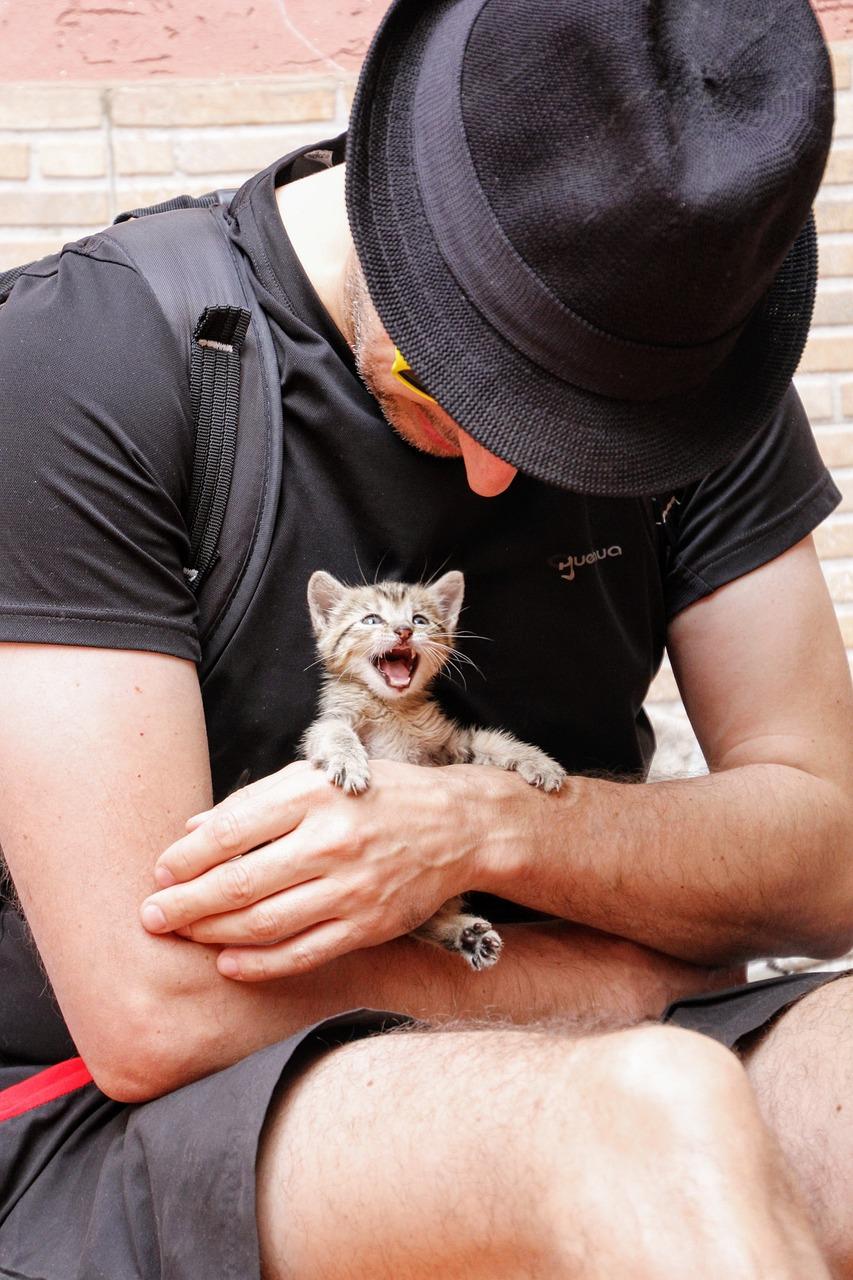Head Tilt of Newborn Kitten: Everything You Should Know

Just imagine:
You're holding a tiny, fragile newborn kitten in your hands.
Your heart fills with joy and excitement as you anticipate the love and cuddles that await.
But then, you notice something off.
The little furball's head is tilted to the side, and worry washes over you like a tidal wave.
Will this precious creature be alright? 😟
Here's the thing, my friend, there's no need to panic.
Let's dive into the fascinating world of head tilt in newborn kittens, shall we?
Possible Medical Causes of Head Tilt in Kittens
Kittens with a head tilt may have some medical problems. To help them, you need to figure out why they have this symptom.
There are a few possible medical reasons behind a kitten's head tilt:
- Middle ear infections: When the middle ear gets inflamed, it messes with a kitten's balance and causes them to tilt their head. Using antibiotics promptly is very important to avoid further complications.
- Vestibular system disorders: A head tilt can be a sign of problems like infections, inflammation, tumors, or polyps in the vestibular system. These problems can also stem from ear infections or injuries.
- Newborn kittens: If a newborn consistently has their head tilted, it could mean there are medical issues at play. For young kittens, congenital vestibular disease or wobbly kitten syndrome might be the cause.
- Non-medical causes: Not all head tilts in kittens are due to medical conditions. Some kittens just tilt their heads because they're focusing on sounds or signals.
Vestibular diseases can be caused by various underlying factors such as ear injuries, brain diseases, metabolic disorders, growths, nutritional deficiencies, toxic substances, and inflammation in the ear canal.
By knowing these potential causes, you can take the right steps to treat your kitten's head tilt and ensure their all in all health and well-being. 😺
Main points I'll expand upon further down this article:
- Seek veterinary care if you notice a persistent head tilt in a newborn kitten.
- Look out for symptoms such as stumbling, falling, rapid eye movements, and difficulty maintaining balance.
- A tilted head can lead to difficulties in nursing and maintaining balance.
- A veterinarian will conduct a comprehensive evaluation for diagnosis, including physical exams and imaging tests.
- Treatment depends on the underlying cause, with options ranging from medication to surgery.
- Congenital forms of head tilt may require symptom management and adaptive care.
- Follow veterinary instructions regarding treatment and provide a quiet and comfortable environment.
- Head tilting caused by idiopathic vestibular syndrome often resolves on its own.
- Early intervention and proper care can greatly improve the chances of recovery.
- Regular follow-up examinations with the vet are crucial for ongoing assessment and support.
But how do you know when a newborn kitten's head tilt is abnormal or when it requires immediate attention?
Well, let me tell you why observation is crucial and what signs to look out for.
How to Identify Head Tilt in Newborn Kittens
When caring for a newborn kitten, you need to observe their posture for any abnormalities.
Consistent head tilting or holding their head at an angle are signs that should not be overlooked.
If you notice these signs in a kitten, don't wait - seek veterinary care immediately. Early intervention is vital for their all in all well-being and development.
Remember, being vigilant in spotting such signs and addressing them promptly can make a world of difference for the little furball.

And finally, when caring for a newborn kitten, it's crucial to provide them with the best possible care.
That's why I highly recommend checking out my article on How to Bottle Feed a Kitten That Won't Eat.
In it, you'll find helpful tips and strategies for ensuring your little furball gets the nourishment they need.
Remember, early intervention and proper feeding techniques can make all the difference in their well-being and development.
Take the time to read my guide and give your kitten the best chance for a healthy start in life.
Other Symptoms Associated With Head Tilt in Newborn Kittens
Rapid eye movements and head tilt in newborn kittens
Newborn kittens are adorable, no doubt about it.
But when a kitten has a tilted head, it can be worrying.
One common sign of a head tilt in newborn kittens is nystagmus - their eyes move rapidly.
Imagine those little eyes darting back and forth uncontrollably, even when they're trying to focus on something.
It can mess with their sense of direction.
Stumbling, falling, and difficulty balancing
And that's not all.
Along with the cute head tilt, newborn kittens may also struggle with other symptoms.
They might stumble and fall frequently, finding it hard to keep their balance.
Their coordination takes a hit too, making simple tasks like walking straight a challenge.
Vestibular disease and additional symptoms
Now you might wonder what causes these issues.
One possible reason is vestibular disease - it affects the inner ear and messes with their balance.
So not only do newborn kittens have trouble keeping their head straight, but they might also walk in circles or constantly topple over.
But there's more.
They may feel nauseous and vomit as part of this package deal.
And to add to that, deafness might happen too.
Keeping a close eye and taking precautions
What can you do to help?
First, keep a close watch on the kitten.
With their imbalance, they can easily get hurt.
And ensure to create a safe environment by removing any sharp objects or hazards that could harm them. Oh, and don't forget to block off any open stairways.
You wouldn't want those curious little explorers getting into trouble!
These symptoms with the head tilt can interfere with nursing and all in all balance.
Keep an eye out, create a safe space, and let the little kitten know you're there to support them through it all.
What to Expect During Diagnosis of Head Tilt in Kittens
When it comes to diagnosing head tilt in kittens, there's a lot that goes into it. Here's what you can expect during the diagnosis:
- Thorough physical examination: This is the first step in diagnosis and includes checking the kitten's ears, eyes, and overall health. It helps rule out any visible issues.
- Blood tests and urine analysis: These tests may be conducted to assess the kitten's overall health and check for any infections or underlying conditions.
- Imaging tests like MRI or CT scans: Sometimes, more advanced imaging is needed to get a closer look at the kitten's head and determine the cause of the head tilt.
- Additional diagnostic procedures: Depending on the individual case, X-rays, CSF analysis, and bone biopsy may be necessary to gather more information and make an accurate diagnosis.
Each kitten is unique, so the diagnostic process may vary.

Remember, the goal here is to identify the underlying cause behind the head tilt and find the most appropriate treatment plan.
Now, you might be wondering how these treatment options actually work and what the prognosis is for newborn kittens with a tilted head.
Let's dive into the details and explore the potential outcomes and long-term management strategies for this condition...
Treatment Options for Head Tilt in Newborn KittensWhen it comes to treating head tilt in newborn kittens, there are several options you can consider. Here's what you need to know:
- Medication: For infection-related vestibular issues, medication can be prescribed to alleviate symptoms and prevent further progression.
- Symptom management: Congenital forms of head tilt require symptom management as there is no cure. Kittens with congenital vestibular disease can adapt and live fairly normal lives over time.
- Neutering: To prevent the passing on of genetic conditions, neutering is highly recommended.
- Supportive care and physical therapy: This can be beneficial for kittens with wobbly kitten syndrome, helping them regain balance and coordination.
- Treatment for ear infections: If the head tilt is caused by an ear infection, medication prescribed by a veterinarian will help. Follow their specific treatment instructions.
- Creating a quiet environment: Ensuring a quiet and comfortable environment aids in the recovery process.
- Severe cases: In severe cases, hospitalization and fluid replacement therapy may be necessary. In some instances, surgery might be needed to address the underlying disease causing the head tilt.
Always consult with your veterinarian to determine the best course of action for your kitten.
Recovery Timeline for Head Tilt in Kittens
Ah, head tilt in kittens.
It can be quite distressing to see, but fear not, recovery is possible!
Here's a timeline of what you can expect during the kitten's healing process:
- Initial stages (0-3 days): The head tilt may appear suddenly, and the kitten may have difficulty walking straight. This is when you should bring your fur baby to the vet for an evaluation.
- Acute stage (3-7 days): During this time, the kitten may experience nausea, loss of appetite, and disorientation. Your veterinarian may prescribe medications to help alleviate these symptoms.
- Subacute stage (1-2 weeks): Improvement begins to show, with the kitten regaining balance and coordination. However, a slight head tilt may still remain.
- Recovery stage (2-4 weeks): At this point, most kittens will have made substantial progress and regained normal function. Some residual head tilt may still be present but tends to diminish over time.
- Long-term care: Ongoing communication with the vet is key. Regular follow-up examinations will ensure that any underlying issues are addressed, increasing the chances of a successful recovery.
Each kitten's journey is unique, so don't lose hope if progress seems slow.
With proper care and monitoring, they can bounce back like champions!
And that wraps up today's article.
If you wish to read more of my useful articles, I recommend you check out some of these: Cats Claws Not Retracting, Do Cats Whiskers Grow Back if They Are Burned, Can a Cat Get Pregnant When Not in Heat, Cat Without Whiskers, and Is Dracaena Toxic to Cats
Talk soon,
-Sarah Davis